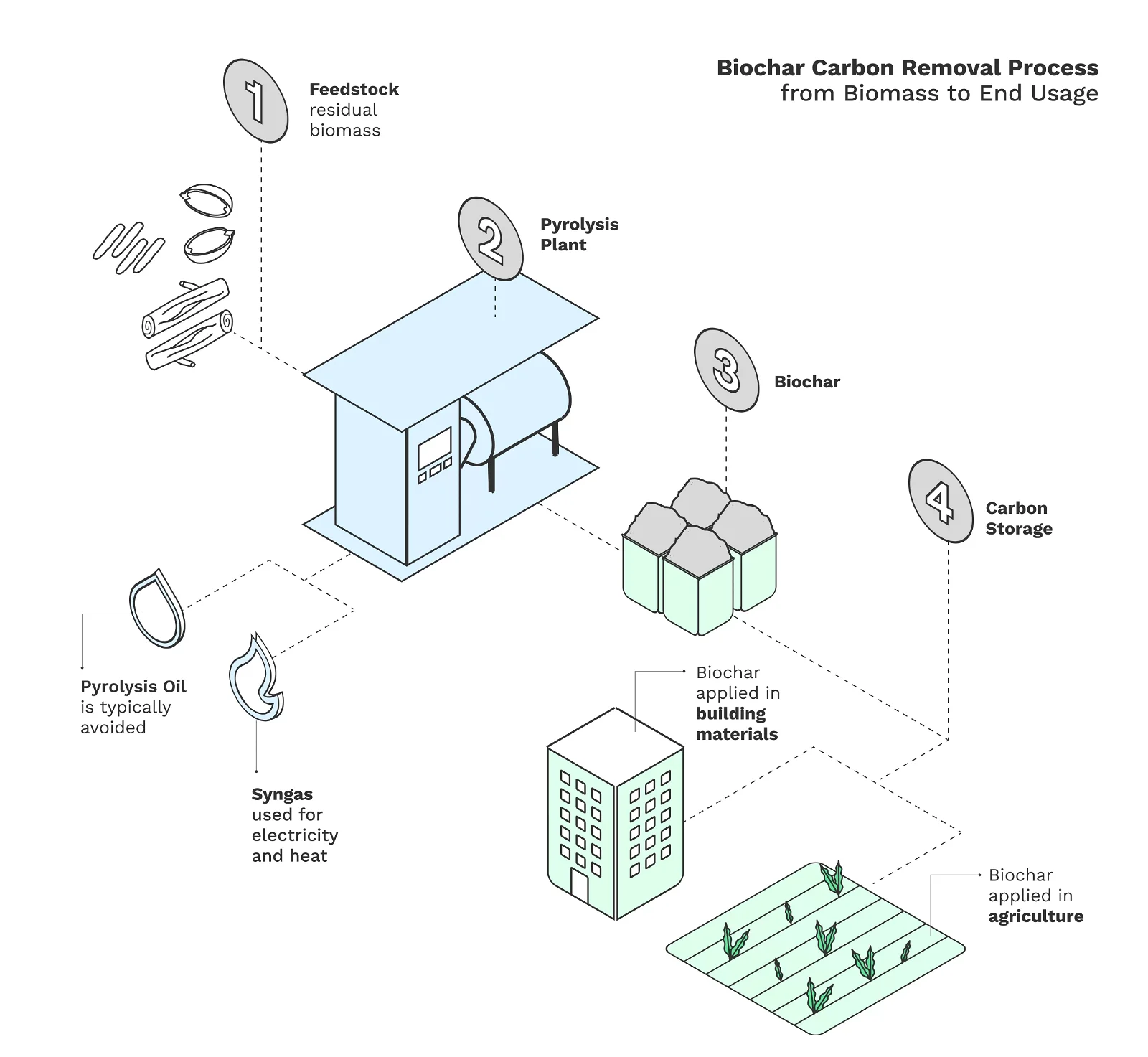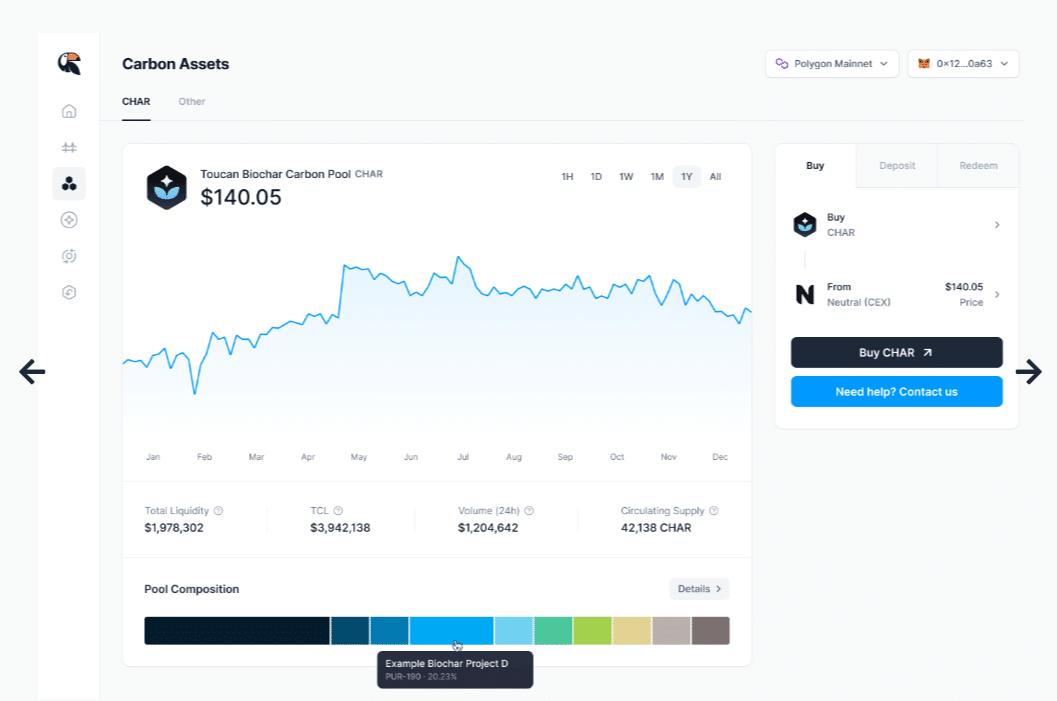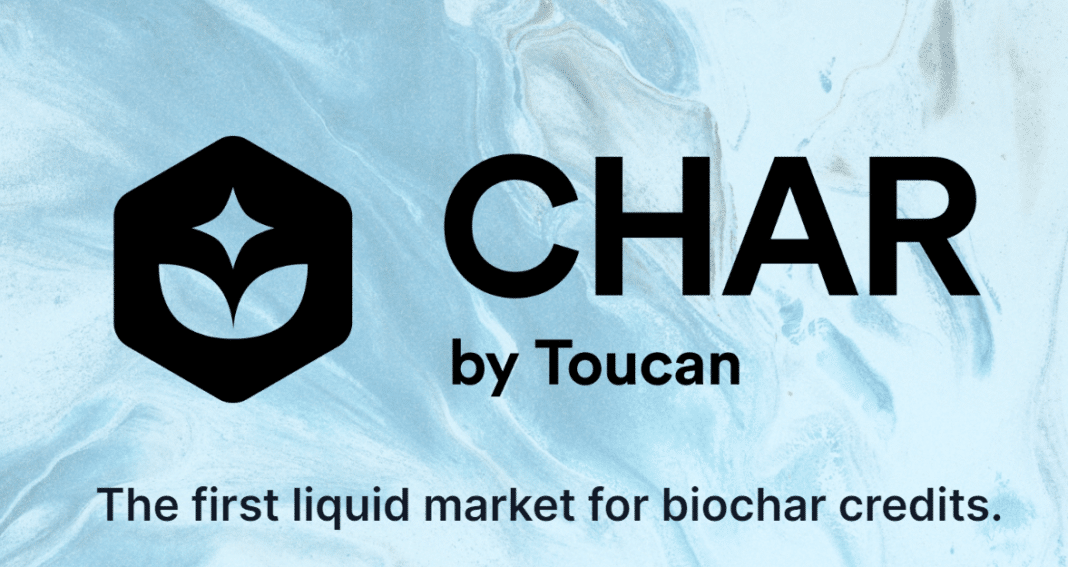Digital platform Toucan.earth is set to launch the world’s inaugural ‘liquid’ market for biochar credits, in response to escalating interest from carbon credit buyers and developers.
Toucan creates a digital infrastructure for climate finance, simplifying the process of buying, selling, and retiring carbon credits.
Why Biochar Carbon Removal Credits?
Biochar, a type of charcoal, is created through the pyrolysis process of organic matter, typically derived from plant-based sources such as wood, crop residues, or manure. This process allows biochar to store carbon for longer periods while offering multiple co-benefits beyond carbon removal.
Such is the reason why biochar has been the go-to approach companies are looking for in their carbon removal solutions. The World Economic Forum calls it a “carbon removal’s jack of all trades”.

For WEF, Biochar Carbon Removal (BCR) isn’t just optional for achieving net-zero targets – it’s critical. It can remove between 0.44 to 2.62 gigatons of CO2 annually, addressing up to 35% of the Carbon Dioxide Removal (CDR) requirements in scenarios aimed at stabilizing the climate.
Notably, 94% of delivered carbon credits in 2023 are biochar while only receiving about 12% of CDR funding (CDR.fyi). Plus, biochar comes at a considerably lower cost compared to other durable CDR approaches. On average, BCR costs $179 per ton of CO2, significantly lower than the average price of $388/ton across all CDR methodologies.
Biochar Unleashes Nature’s Carbon Removal Power
Moreover, demand for biochar carbon removal credits has surged. According to the International Biochar Initiative, the industry’s main trade group, there would be a potential 6-fold increase in biochar material output within the next 2 years.
The group also found out that biochar can potentially eliminate up to 6% of global emissions annually. That’s equivalent to about 3 billion tonnes of CO2 of the total emissions produced by 800+ coal-fired power plants in a year.
BeZero, a credit rating platform, recently reaffirmed its confidence in BCR by awarding an A rating to a BCR project. This marks BeZero’s inaugural evaluation of CDR credits, highlighting the increasing recognition and reliability of BCR within the removal landscape.
However, the absence of a liquid market, one that is widely traded, has impeded many investment opportunities in BCR.
Within the broader voluntary carbon market, standardized contracts on exchanges have lost momentum due to a significant price decline. Meanwhile, over-the-counter trading for individual projects remains active but highly customized.
This VCM issue is what Toucan addresses as emphasized by its founder, Raphaël Haupt, saying:
“Everyone is trying to understand how we can have the best of the standardized and the OTC worlds…The pool is our answer.”
Toucan gained prominence in 2021 by introducing ‘tokenization‘. It’s a digital process that transforms carbon offsets into assets transferable on the blockchain, facilitating their use in various financial applications.
By seamlessly integrating with existing registries, Toucan moved over 20 million carbon offset credits into the crypto space within weeks. It is further fueled by a growing interest in the energy transition from the crypto community.
However, amid widespread adoption, concerns arose regarding the quality of transferred credits.
CHAR: Transforming Carbon Trading with Crypto Innovation
Subsequently, the practice was prohibited by the US-based registry Verra, despite the enthusiasm for crypto assets and brokers’ profit motives.
Last year, Toucan established a seamless connection with the Puro.earth registry, facilitating credit transfers between their platforms.
The digital platform has introduced an additional screening process for Puro.earth projects based on its criteria. From that, Toucan is on the brink of launching a marketplace for biochar carbon removal credits sourced from those projects.
-
Toucan believes that this new crypto-based carbon platform called CHAR would give buyers a low-risk process to acquire BCR credits.
CHAR by Toucan serves as a pivotal infrastructure facilitating the automated, on-demand trade of biochar carbon credits. It consolidates pre-screened credits sourced from Puro.earth called “CORCs” onto a unified platform under the banner of CHAR.
CHAR’s streamlined access to capital aligns with Toucan’s mission to alleviate significant supply bottlenecks prevalent across CDR initiatives. It aids existing and emerging projects within the nascent biochar market to liquidate their credits to finance their expanding operations.

The pool will establish a unified price for BCR credits accessible online round the clock, enhancing transparency within the industry. A sale within Toucan’s CHAR pool will automatically trigger a payment to the original project developer in the form of ‘royalties’, offering them potential upside if a project experiences high trading activity.
The company has enlisted its initial group of project developers, including US-based Oregon Biochar Solutions, Quebec-based GECA Environnement, Exomad from Bolivia, American Biocarbon, and BC Biocarbon from Canada.
Thanks to the direct integration with Puro’s registry, buyers will also have the flexibility to permanently retire the credits, sell them into the pool, or transfer them back into their Puro account.

